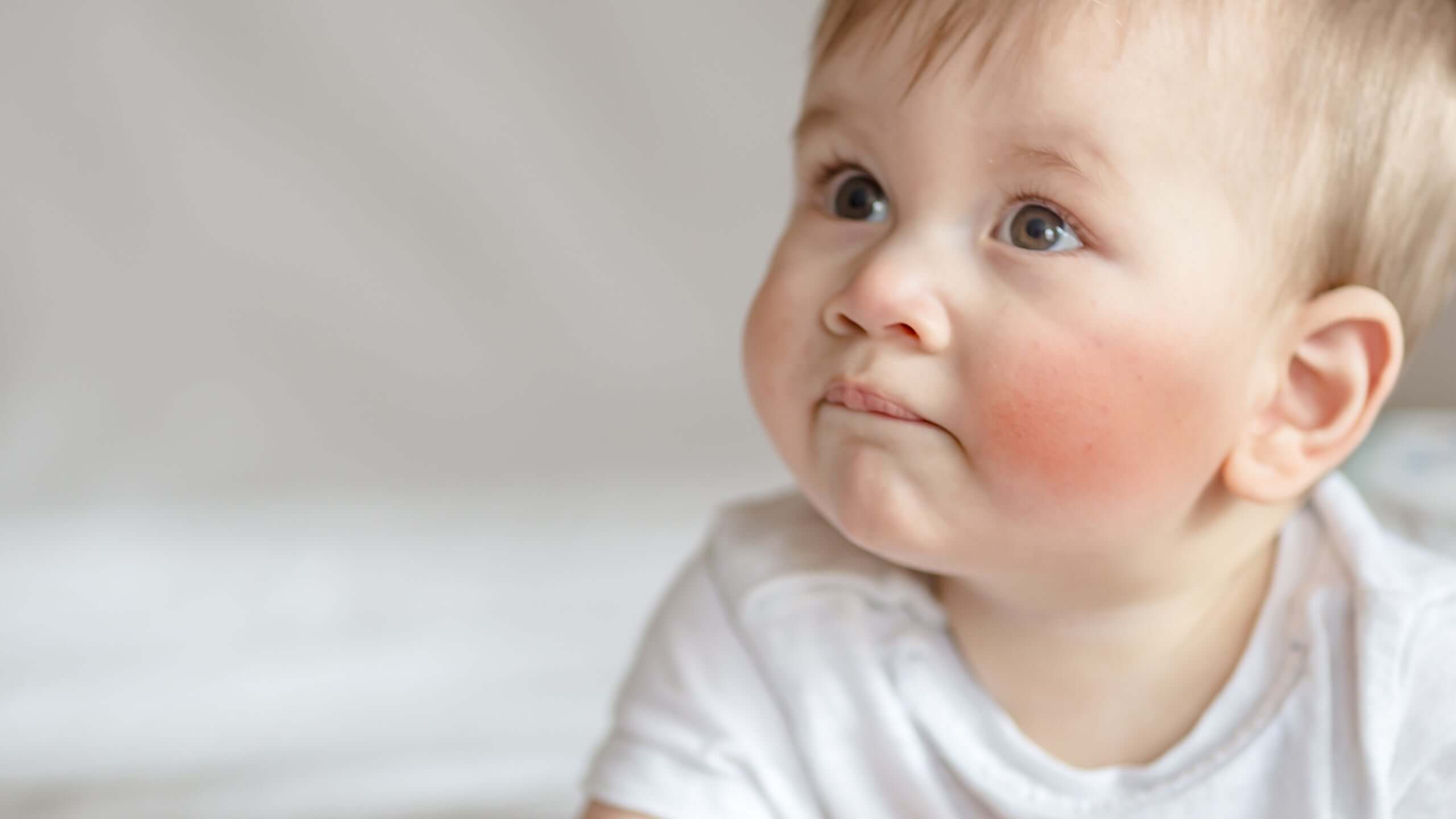Introduction
As a parent, noticing any skin abnormalities on your baby can be concerning. However, understanding the differences between two common conditions, baby eczema and acne, can empower you with the knowledge to provide the proper care and treatment.
What is Baby Eczema?
Definition and Overview
Baby eczema, or atopic dermatitis, is a chronic skin condition characterized by dry, itchy, and inflamed skin. It often appears within the first six months of a baby’s life.
Common Symptoms
- Red, inflamed skin
- Dry patches
- Intense itching
- Swelling and sometimes oozing
Causes of Baby Eczema
The exact cause of eczema is unknown, but it is believed to be a combination of genetic and environmental factors. It often runs in families with a history of allergies, asthma, or atopic dermatitis.
Risk Factors
- Family history of eczema, allergies, or asthma
- Dry skin
- Exposure to irritants and allergens
What is Baby Acne?
Definition and Overview
Baby acne, also known as neonatal acne, is a common skin condition that affects newborns. It typically appears within the first few weeks of life and usually clears up.
Common Symptoms
- Small red or white bumps on the cheeks, forehead, and nose
- Occasional inflammation
Causes of Baby Acne
The exact cause is not well understood, but it is thought to be related to maternal hormones passed to the baby during pregnancy.
Risk Factors
- Maternal hormone levels
- Family history of acne
Critical Differences Between Baby Eczema and Acne
Symptoms Comparison
Appearance of Eczema
Eczema appears as red, inflamed patches of dry and itchy skin. The skin may crack, ooze, and become prone to infections in severe cases.
Appearance of Acne
Baby acne manifests as small red or white bumps, primarily on the face. Unlike eczema, it does not cause itching or dryness.
Affected Areas
Common Areas for Eczema
Eczema commonly appears on the face, scalp, and joints, such as the elbows and knees.
Common Areas for Acne
Baby acne typically appears on the cheeks, forehead, and sometimes the chin.
Age of Onset
Eczema Onset
Eczema often begins within the first six months of life and can persist into childhood.
Acne Onset
Baby acne usually appears within the first few weeks after birth and typically resolves within a few months.
Diagnosis
How Eczema is Diagnosed
Eczema is diagnosed based on the appearance of the skin and the presence of typical symptoms. A doctor may ask about family history and any known allergies.
How Acne is Diagnosed
Baby acne is diagnosed by its characteristic appearance. No specific tests are needed, and it is usually recognized during a physical examination.
Treatment Options for Baby Eczema
Skincare Routine
- Use mild, fragrance-free cleansers
- Apply moisturizers regularly
- Avoid long, hot baths
Medications
- Topical corticosteroids to reduce inflammation
- Prescription creams, if necessary
Home Remedies
- Oatmeal baths to soothe itching
- Cold compresses to reduce inflammation
Treatment Options for Baby Acne
Skincare Routine
- Wash the baby’s face with water and mild soap
- Avoid scrubbing the skin
Medications
- Most baby acne does not require medication and clears up on its own
Home Remedies
- Pat the skin dry gently
- Avoid oily or greasy lotions
Preventive Measures
Preventing Baby Eczema
- Keep the skin moisturized
- Avoid known irritants and allergens
- Dress the baby in soft, breathable fabrics
Preventing Baby Acne
- Keep the baby’s face clean
- Avoid harsh skincare products
When to See a Doctor
Signs to Watch For in Eczema
- Severe itching and discomfort
- Signs of infection (yellow crust, oozing, or swelling)
- No improvement in home care
Signs to Watch For in Acne
- Persistent or severe acne
- Signs of infection or inflammation
Impact on Baby’s Health
Long-term Effects of Eczema
Eczema can persist into childhood and may increase the risk of developing allergies and asthma.
Long-term Effects of Acne
Baby acne typically resolves without long-term effects, though severe cases may leave temporary marks.
Conclusion
Understanding the key differences between baby eczema and baby acne is essential for providing appropriate care for your baby. While eczema may require a proactive skincare routine and possible medical intervention, baby acne usually resolves independently with minimal treatment. However, it’s always best to consult a healthcare professional if you have any doubts or concerns about your baby’s skin condition, ensuring your baby’s health and safety.
FAQs
How can I tell if my baby has eczema or acne?
Eczema is typically dry, red, and itchy, while acne is small red or white bumps without dryness or itching.
Can baby eczema turn into a more serious condition?
If left untreated, eczema can lead to skin infections and may be associated with other allergic conditions like asthma.
Is baby acne painful for my child?
No, baby acne is generally not painful and does not cause itching or discomfort.
What should I avoid when treating my baby’s skin?
Avoid harsh soaps, fragrances, and any products containing alcohol or other irritants.
Can diet affect baby eczema or acne?
Diet may influence eczema, especially if there are food allergies, but it generally does not affect baby acne.
